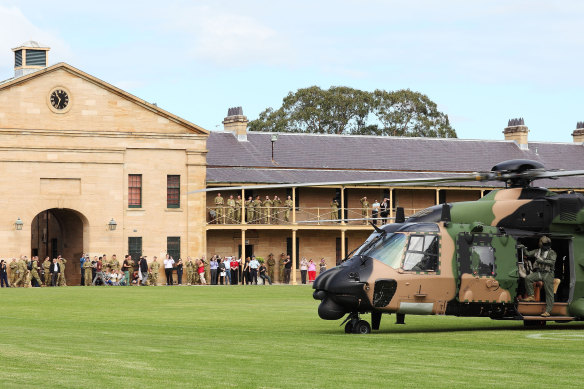
Plans for a significant sale of properties from the Australian federal government’s extensive Defence real estate portfolio have been postponed until at least next year, with a potential delay extending beyond the upcoming elections. This decision has sparked criticism from both the Coalition and the Greens, who express concerns over the implications of disposing of key military sites.
The Defence Minister, Richard Marles, received a comprehensive audit of Defence properties in December 2022 and had intended to announce a response by mid-2023. Now, Marles has confirmed that the government will defer any action based on the audit until “sometime next year.” This delay means that the response could be withheld for more than 18 months after the audit’s completion.
One of the properties under scrutiny is the historic Victoria Barracks in Paddington, located in Sydney’s eastern suburbs. The barracks, along with others, has been evaluated for potential sale as a means to generate funds for military upgrades and new equipment. The Australian Strategic Policy Institute estimates that the total resale value of the Defence estate could reach as high as $68 billion if sold to property developers for residential or commercial use.
In addition to financial considerations, the sale of Defence properties could also contribute to addressing the ongoing housing crisis in Australia. Converting military sites into residential developments may help increase housing supply in major urban areas. Among the properties examined is a significant 127 hectares of contaminated military land in Maribyrnong, Melbourne. Defence is anticipated to provide a recommendation regarding this land’s future in early 2025, after being discussed as a potential housing site for the past two decades.
Despite the potential benefits, the delay has raised concerns within the political landscape. The government’s lowered recruitment targets for the military have also drawn attention, prompting a further investment of an additional $600 million in incentives to attract more Australians into military service. Critics argue that this move reflects a broader struggle within the Defence sector to meet its needs.
Overall, the postponement of the Defence property sales may have ramifications for both military funding and housing supply, reflecting the complexities of balancing national security interests with pressing social issues. As the government prepares for a significant year ahead, the outcomes of these decisions will likely influence both Defence strategy and housing policies across Australia.






